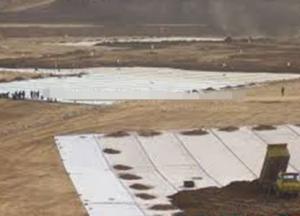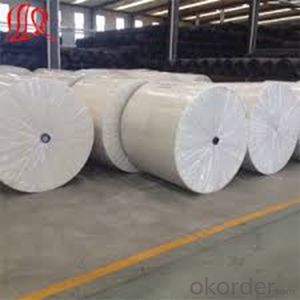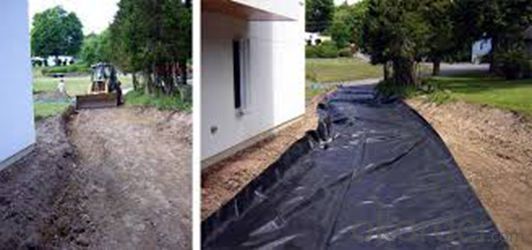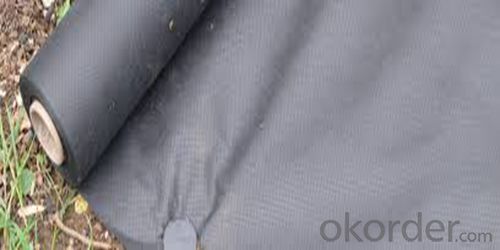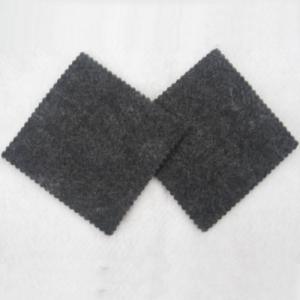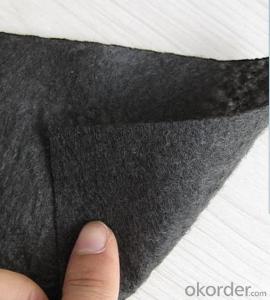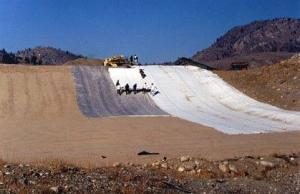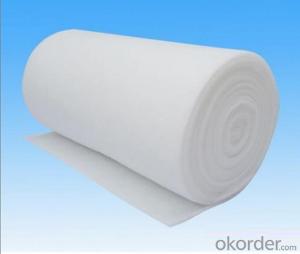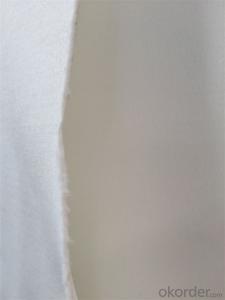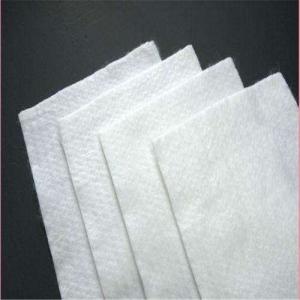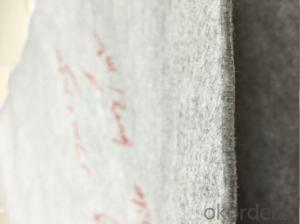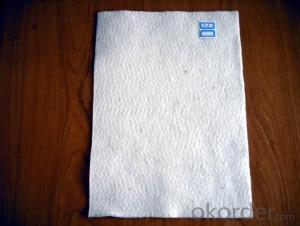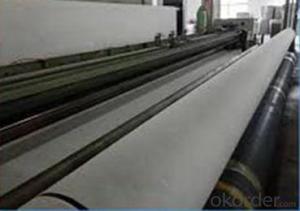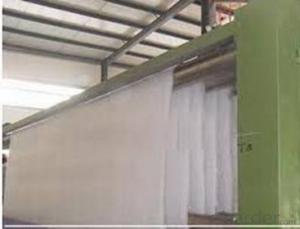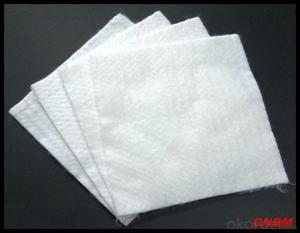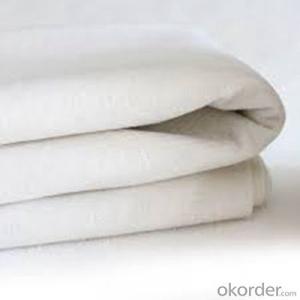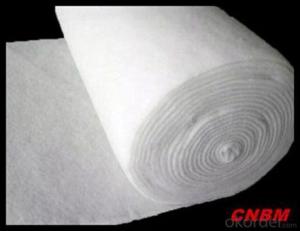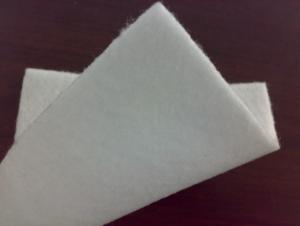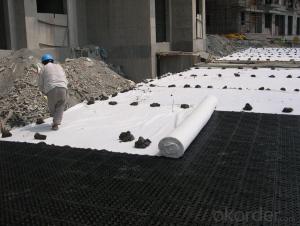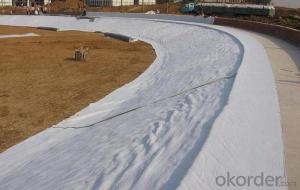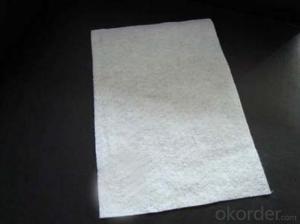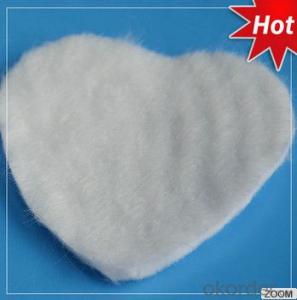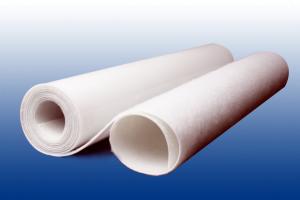Gaine Geotextile Needle Punched & Geotextile Non-Woven for Construction in China
- Loading Port:
- China main port
- Payment Terms:
- TT OR LC
- Min Order Qty:
- 3000 m²
- Supply Capability:
- 1000000 m²/month
OKorder Service Pledge
OKorder Financial Service
You Might Also Like
Specification
Description:
Filament woven geotextile:it is made of high strength polypropylene, polyester, nylon or mixed them together, all of which keep the original strength. They were wovened together to forn the pilotaxitic textured, which can keep certain structure and improve the original strength.
Specification:
Nominal breaking strength in MD: 35kN/m,50kN/m,65kN/m,80kN/m,100kN/m, 120kN/m, 140kN/m, 160kN/m 180kN/m, 200kN/m,250kN/m:
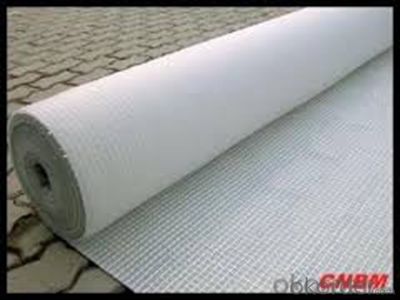
Packaging & Shipping
Packing: PLASTIC FILM INSIDE, AND WOVEN BAG OUTSIDE
Shipping: About 15 days after receipt the deposit
geotextile fabric
permeability,filtration,easy for construction
ISO and CE certificate
Good quality and competitive price
Our Service
Quality assurance
1.On a regular basis or as per your request,we entrust national testing agencies to conduct quality inspections
2. Strictly in accordance with the ISO9001-2008 international quality system standard,we monitor and manage the whole process throughout production,quality testing,and measurement to ensure product quality
3. For quality-related construction delay or substandard construction(except for damage or losses due to customer’s responsibility or irresistible natural disasters),we have refunding,replacement,and repair services.We will respond to customers’ feedbacks on quality issues within 24 hours.
After-sales service
1.In order to provide customers with comprehensive technical support,we will provide technical and other related information upon request in a timely manner.
2.In required,we will appoint specialized technicians to the construction site to give technical trainings to construction people,and offer technical guidance throughout the whole construction process.
3.For damage due to shipment and delivery,after we receive the complaint,we will check the issure through provided pictures and videos.If our responsibility is confirmed,we wil offer free replacement.
4.When the construction is completed,as your request,our technical staff may participate in the final acceptance.
FAQ:
Q: What kind of payments does jenor support?
A: T/T, L/C, Cash are accepted.
Q: Do you charge for the samples?
A: Accordeing to our company policy, the samples are free, we only charge the freight fee. And we will return the freight fee during the next order.
Q: Can you produce according to customers' design?
A: Sure, we are professional manufacturer, OEM and ODM are both welcome.
Q: Do you have other products?
A: Yes, please check the pictures:
- Q: What is geotextile cloth?
- Geogrid, geotextile, geomembrane manufacturers, specializing in the production
- Q: Geotextile detection sampling, how many meters
- Two meters by two meters! Geotextile manufacturers to answer!
- Q: What are the specifications for geotextiles used in erosion control tubes?
- The specifications for geotextiles used in erosion control tubes typically include criteria such as high tensile strength, UV resistance, durability, and permeability to allow for proper water drainage while preventing soil erosion. These geotextiles are usually made from synthetic materials like polypropylene or polyester to ensure long-term stability and effectiveness in erosion control applications.
- Q: How do geotextiles improve the performance of railway tracks?
- Geotextiles improve the performance of railway tracks by providing reinforcement and stabilization to the track bed, preventing soil erosion and reducing settlement. They also enhance drainage, reducing water accumulation and improving the overall resilience and durability of the tracks.
- Q: Contracted geotextile impermeable membrane laying artificial one square how much money
- Depending on where you look at the construction, the normal range of 2 to 4 yuan.
- Q: What are the different geotextile reinforcement techniques for slopes?
- Some of the different geotextile reinforcement techniques for slopes include the use of geotextile fabrics, geogrids, and geocells. Geotextile fabrics are commonly used to stabilize slopes by providing separation and filtration of soil particles. Geogrids, on the other hand, are high-strength materials that are used to reinforce soil and increase its stability. Geocells are three-dimensional cellular structures that can be filled with soil or other materials to create a stable slope. These techniques can be used individually or in combination to provide effective reinforcement for slopes and prevent erosion.
- Q: How are geotextiles used in landfills?
- Geotextiles are used in landfills to help enhance the stability, drainage, and filtration of the waste disposal site. They are typically placed between the layers of soil and the landfill liner system to prevent soil erosion, control gas and liquid migration, and provide reinforcement for the overall structure.
- Q: Can the geotextile of the filter layer be constructed?
- Try not to build on rainy days.
- Q: Geotextile price
- 0.7-1.2 yuan if it is 100g words
- Q: Can geotextiles be used in geosynthetic clay liner caps?
- Yes, geotextiles can be used in geosynthetic clay liner caps. Geotextiles are often used as a protective barrier or separator in geosynthetic clay liner systems to enhance their performance and prevent clogging or migration of fine particles.
Send your message to us
Gaine Geotextile Needle Punched & Geotextile Non-Woven for Construction in China
- Loading Port:
- China main port
- Payment Terms:
- TT OR LC
- Min Order Qty:
- 3000 m²
- Supply Capability:
- 1000000 m²/month
OKorder Service Pledge
OKorder Financial Service
Similar products
Hot products
Hot Searches
Related keywords
